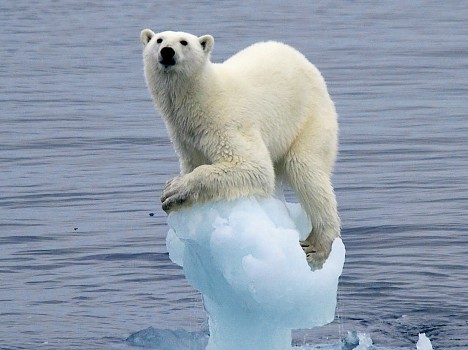Views: 242
It is said that most social change isn’t sparked off by just one event. Generally, there is a snowball effect. One event leads to another and each time the consequences are greater. Environmental affairs seem also to be snowballing, global problems end up determining local ones.
Environmental changes are been compared by some thinkers to water which eventually starts to boil. The fact is that no one bubble causes the water to boil, it happens when the sum total of energy, throughout the water, is in the process of heating sufficiently to kick start the change. Phenomena like the 15M, which have risen up over the last few years, or other movements which have filled public squares and streets with protesters at the same time receiving wide-ranging support from those who remained at home, are explained by this kind of build up. A string of unresolved injustices have led to the construction of a solidarity movement which has now reached boiling point. Discontent is widespread and has diverse causes. We live in a society controlled by fear (the television bombards us with bad news, adverts create a permanent feeling of dissatisfaction, employment law reforms leave us with no legal protection…) but when dreams are shattered fears shift to indignation and that way new horizons appear.
Globalization is one of reasons why the usual patterns of analysis of social conflict have had to change. Most economic transactions now transcend national borders. Traditional political tools of analysis are no longer of any use. They must be re-invented if they are to adapt to new circumstances.
Environmental globalization is also on the agenda. After decades of promoting protected areas, where great effort has been made to control diverse circuits of pollution and rationalize the use of natural resources, where the idea of “think globally act locally” is applied, at last people are beginning to take on board global problems. There are also certain indicators which show that in some places exactly the opposite is happening. Although Mr Trump will try to deny certain truths so that the ruling economic powers can continue doing business as usual in the fossil fuel industry, this won’t stop climate change which is now firmly underway. To face up to this problem we are going to need much more politically active strategies than we have now.
We may very well see some more election results favouring politicians who choose to point the finger at those people who have been totally disempowered (such as war refugees and people fleeing from repression and horror). But while have their minds set on stopping immigration , the multi-nationals who produce plastic are trying their best to stop changes in law which would put an end to the use of disposable non-biodegradable products. But the delaying tactics used by politicians does not alter the real conflict. Due to the sheer volume of plastic present in the sea, it has now found its way into the food chain and is causing a lot of problems. Ideas and forward thinking actions are required which must be implemented globally if they are to have any effect at all.
With all this going on it is necessary to reinforce current initiatives which share the objective of working globally to confront problems of global importance. It is important to promote NGOs so that they have enough presence and power to influence government organizations and incite them into working towards the common good rather than just empowering lobby groups. Not long ago, Naomi Klein reminded us that there are people in power who will make the most of any opportunity given to them in order to improve their own position by worsening everybody else’s. Being sensitive and open to the movements which are leading social change is one of the best ways for governments to put into place the policies and strategies which are now so urgently needed.
Article published by Miquel Camps, at Diari Menorca 05/12/16.

